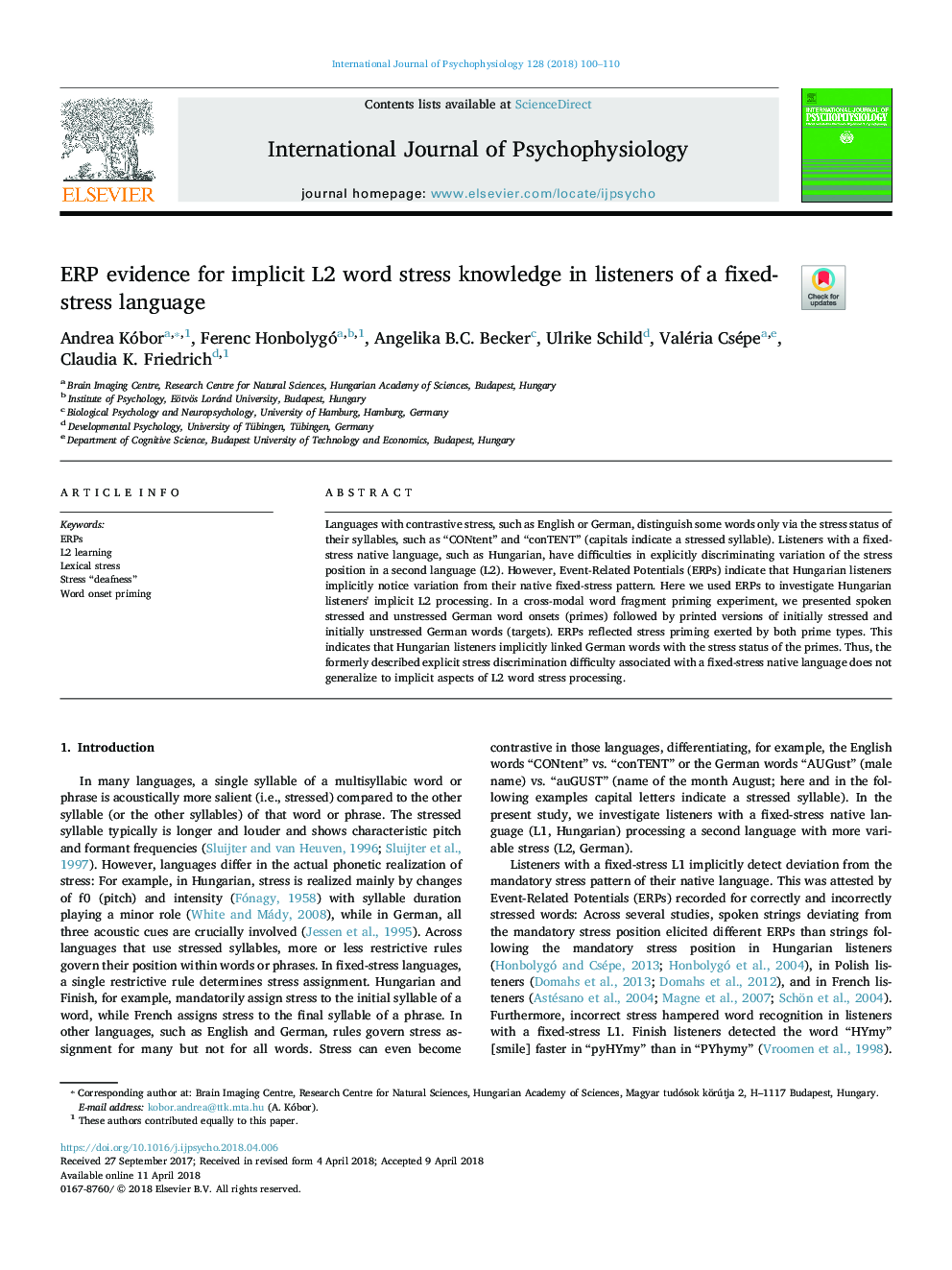| Article ID | Journal | Published Year | Pages | File Type |
|---|---|---|---|---|
| 7294824 | International Journal of Psychophysiology | 2018 | 11 Pages |
Abstract
Languages with contrastive stress, such as English or German, distinguish some words only via the stress status of their syllables, such as “CONtent” and “conTENT” (capitals indicate a stressed syllable). Listeners with a fixed-stress native language, such as Hungarian, have difficulties in explicitly discriminating variation of the stress position in a second language (L2). However, Event-Related Potentials (ERPs) indicate that Hungarian listeners implicitly notice variation from their native fixed-stress pattern. Here we used ERPs to investigate Hungarian listeners' implicit L2 processing. In a cross-modal word fragment priming experiment, we presented spoken stressed and unstressed German word onsets (primes) followed by printed versions of initially stressed and initially unstressed German words (targets). ERPs reflected stress priming exerted by both prime types. This indicates that Hungarian listeners implicitly linked German words with the stress status of the primes. Thus, the formerly described explicit stress discrimination difficulty associated with a fixed-stress native language does not generalize to implicit aspects of L2 word stress processing.
Keywords
Related Topics
Life Sciences
Neuroscience
Behavioral Neuroscience
Authors
Andrea Kóbor, Ferenc Honbolygó, Angelika B.C. Becker, Ulrike Schild, Valéria Csépe, Claudia K. Friedrich,
